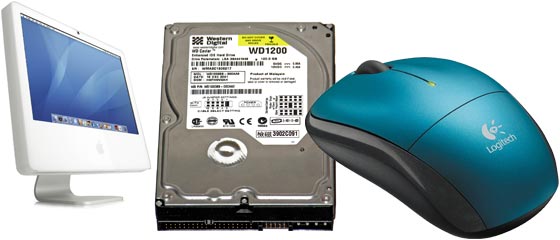 ![[Header]](../XuShared2/Line3.jpeg)

Add a Comment (Go Up to OJB's Blog Page) A Cloudy FutureEntry 1066, on 2009-08-03 at 20:59:18 (Rating 2, Computers) I have been working with computers for many years now. I started in the days of mainframes, in fact my first computer program was written on punch cards. I should say here that card technology was already more-or-less obsolete when I did this so I'm not that old!
So I started my programming career on mainframes (and large minis) like Burroughs and Vax systems and since then moved on to programming personal computers instead. I also used big machines for word processing, email, and game playing in the early days so I know what its like to use a system where I don't own any part of it myself.
Where is all this leading you might be wondering. Basically I'm imagining the future, where our data and a lot of our software is stored in the "cloud". The cloud seems to be the latest trend in computing or at least a perceived trend which might eventuate in the near future. Companies like Google and Microsoft would store your data and your programs on their servers somewhere on the internet (the cloud) and your computer would just act like a smart terminal.
Is this a future we really want? It seems very much to me like its a step back to the mainframe days when the user had a terminal to access the information stored in a more local version of the cloud (generally on hard disks in a machine room in some, possibly unspecified, location).
The cloud has some advantages. The users can access their data from any computer and anywhere. They can let professionals manage its storage, maintenance and backup. And most of their software would also be in the cloud so there would be no need to manage updates, bug fixes and backups of that.
That sounds fairly impressive but there are some problems as well. One of the biggest is that you have to trust someone else to keep your data safe and secure. Google might be tempted to scan it for information which could be used to target advertising for example. And there are instances of major losses of data from professionally managed systems, including the backups, so safe storage certainly isn't guaranteed.
Another issue is the reliance on the internet for access. If the internet connection failed or got slow then accessing data becomes impossible or difficult. It's true that connection technology is getting faster and more reliable all the time but will there ever be a time when it is always there and always fast?
And another issue is flexibility. Cloud computing would presumably be done through a web browser and (as a web programmer myself) I am impressed with what can be done in a browser now. But there are a lot of technical issues which make browsers a less flexible and capable environment than a real operating system. Maybe web applications won't be quite as capable as our existing conventional programs.
So I'm very suspicious of the cloud computing future. Its proponents make it sound great but maybe that's because it suits their needs rather than the users.
 Comment 2 (2362) by OJB on 2009-08-06 at 09:33:50: (view earlier comments)
I actually wrote some fairly complex programs on programmable calculators before that but that was the first program for a real computer. I still have those punch cards actually. I must post a picture some time!  Comment 3 (2365) by SBFL on 2009-08-06 at 10:28:00:
Tell us about the log tables gramps!  Comment 4 (2369) by OJB on 2009-08-06 at 12:08:41:
Why you young whippersnapper! If I catch up with you I'll beat you with my cane!  Comment 5 (2371) by SBFL on 2009-08-06 at 12:29:41:
Well you said: "I must post a picture some time!"
I've found one for you:
Do you know what this is?  Comment 6 (2373) by OJB on 2009-08-06 at 12:37:36:
I was going to say a drive for an IBM 360 but apparently its for a 650, so at least I was close. The University did have that sort of equipment at one time but it was gone by the time I started working here! 
You can leave comments about this entry using this form. To add a comment: enter a name and email (both optional), type the number shown above, enter a comment, then click Add.
Note that you can leave the name blank if you want to remain anonymous.
Enter your email address to receive notifications of replies and updates to this entry.
The comment should appear immediately because the authorisation system is currently inactive.
![[Comments]](../XuShared/Comment1B.jpeg) ![[Preview]](../XuShared/Comment6B.jpeg) ![[Blog]](../XuShared/Up2B.jpeg) ![[Blog]](../XuShared/Comment4B.jpeg)
|

![[Comments]](../XuShared/Comment1B.jpeg)
![[Preview]](../XuShared/Comment6B.jpeg)
![[Blog]](../XuShared/Up2B.jpeg)
![[Blog]](../XuShared/Comment4B.jpeg)